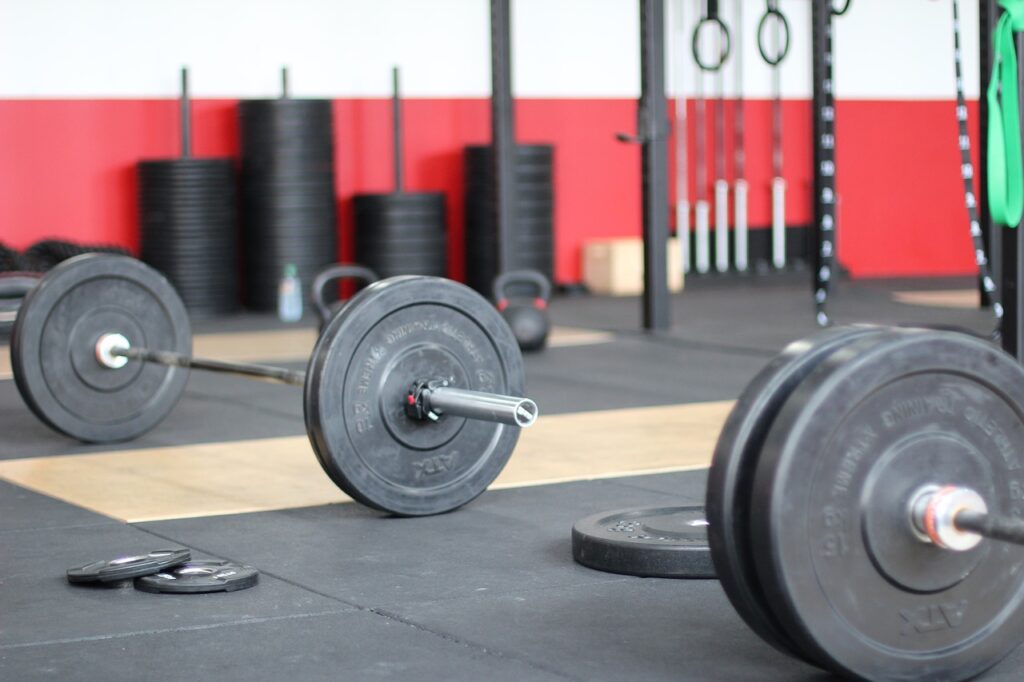By Tim Kontos, CSCS, USAW
Head Strength and Conditioning Coach
Virginia Commonwealth University
For EliteFTS.com
In part one I covered some the basic principles of being a strength and conditioning coach. Now I will cover what I feel are the most important aspects of coaching in the weight room.
KNOW AND WORK ON YOUR FLAWS
This creates a lot of work for me because I have a lot of them. Whether your flaw is your lack of education or your ability to be loud and obnoxious, you will never get better at it if you don’t work on it. I must say that this isone of the more difficult items on the list because it requires a great deal of self discipline to do something on a daily basis that you know you are not good at. But, realize that by doing this you are getting better. “Get what is weak strong.” This not only belongs in the weight room it belongs in every aspect of our lives.
STAY POSITIVE
My athletes will always know when they are screwing something up. “What the hell is that? That’s not what I taught you.” They hear it all the time. But when they do something right everyone will know it. “Yeah! That’s it! That’s what I’m talking about!” I always end on a high note. If you stay negative they won’t come back. A great S & C coach told me “You can’t do anything for them if they are at home.” There is a certain bedside manner that separates personal training from being a strength coach. I don’t coddle my athletes; in fact I would say I err on the other side. However, when I have an individual who I have been “on” the entire workout, after the workout as they walk out the door, I will catch them, look them straight in the eye and say “Hey Jim, good workout.” My athletes know I won’t sugar coat anything. On the flip side I have seen individuals watch an athlete do something wrong, know it is wrong and say “good job.” Why? The reasons are various. They don’t want to upset the athlete. They are afraid the athlete will reject them. They are afraid this will hurt the friendship that they have built with the athlete. This is another issue for another article. I recently heard of a technique that the famous film director, Martin Scorses, uses that I thought might be useful for coaches. When they finish filming a scene, he says, “This was good, that was good. Now let’s try this…” Now I am not saying we have to baby our athletes but again, if they don’t come back we can’t help them.
INDIVIDUALIZE YOUR MOTIVATION
Speaking of motivation, you must realize that different things motivate each individual. So with that you have to learn each guy’s girlfriend’s name and to motivate them you need to say, “Hey Joe, picture me kissing Sally.” That’ll motivate ‘em. All joking aside, once you realize how important this is, you will improve by leaps and bounds as a coach. You can’t go up to the little guy on the team and scream at him before a big lift the same as you would the biggest guy on the team. As a coach you need to get to know each person as an individual, which can be difficult especially if you are a lone strength coach in a big athletic department. Do what you can with what you’ve got.
BE FLEXIBLE
No, this is not a reference to your sit and reach. What I’m talking about here is your ability to get along with others. If you have all of the personality traits that I’m discussing here but cannot bend in your ways, you will run into problems, not just as a coach, but in life in general. Here is a perfect example: most people who are “in the know” these days in strength and conditioning, realize that static stretching before a game or workout is becoming more of a no-no. However, if a coach wants his players to “get together” prior to a game to promote team unity I am not going to argue with that. Why? Number one, it’s his team and he has first say. Number two, if the coach is not comfortable with how you are doing things you will be removed from that situation. Lastly, the head coach is the one who will lose his job if games are not won and he has to be comfortable with everything his kids are doing in training leading up to those wins.
BE ENERGETIC
Yeah, that does sound a little Jane Fonda-ish but it’s true. A common thread that great strength coaches all share is that they are energetic. How many times have heard “attitude is contagious”? If you were to come to work each morning at 6 a.m. and your co-worker was always energetic and couldn’t wait to get to work, you would want to work right? I am always energetic to the point of being annoying. When I first started doing this I really felt like an ass, but I noticed the difference in the attitude of my athletes and have continued since. I have to say that my wife would be extremely upset if she saw how energetic I was at work when I come home dead tired each day. How would you get psyched up for a big lift with a coach who is standing there and never raises his/her voice? Yes, motivation is internal but come on, get fucking fired up! Another thought on this subject-when it comes to work I am a type A person, which means I must always be doing something. I believe that this is a part of motivation. Not just doing something but always talk to your athletes. When you walk around the weight room, talk to everyone. I’m not saying get up to speed on current events but, correct form, encourage people, hell, count reps. Just keep talking and motivating. If you stand there and say nothing you look like a goober and probably feel like one as well.
LEAD BY EXAMPLE
This is one of the more important points I can write about. I’m not saying you have to look like Mister Universe, but you definitely have to lift and have a good understanding of lifting in the form of “training” to be a good strength and conditioning coach. I have no problem having my athletes in the weight room when I am training. This way they can see that I practice what I preach. Now I won’t train if I have a large group in but if an individual cannot make the team time and they happen to be coming in when I am training, they are going to train with me. This concept is not just limited to lifting, it is across the board. My athletes always feel free to give me a hard time. One of my baseball players said, “Tim, you eat too healthy.” He always happened to come in to the weight room when I was eating lunch. Yes, I eat lunch in the weight room. If you have the time to leave for lunch every day you are not doing your job as a strength coach. My response was, “John, if you are as serious about meeting those goals we discussed, you would take all aspects of your training seriously.” I remember talking with a graduate assistant on our basketball staff. She was a former athlete in our conference. I said, “How did you like working with coach so and so while you were an athlete?” Her reply was, “It was o.k. But a lot of the girls didn’t take him seriously.” “Why?” I asked. She said, “because of the way he looks.” It happened that this guy hadn’t lifted in years and looked the part. Now what if this guy took a little better care of himself and worked out a little bit? Would that make him a better coach? Maybe, it would get him more respect. And he will always keep in mind what he is asking his athletes to do every time he gets under the bar.
REALIZE THAT YOU DON’T KNOW EVERYTHING
When I first got into this game I thought I knew everything. It took me some time but I realized that there was a lot that I didn’t know. Then over time I realized that I barely know anything. I am a firm believer that the sooner you realize that you don’t know shit the sooner you will become a fast learner. If I had knocked the chip off my shoulder when I first started as a S & C Coach, the sooner I would have been able to reach out to those who were more knowledgeable and more experienced. Remember, if you don’t know something, you need to ask. Do as much research in that area as you can, but when you exhaust all of the possibilities, go to the source.
Now, will following all of these guidelines make you the best strength coach in the world? Probably not. I wrote this because I wish someone had given me this list when I first started out in the Strength and Conditioning field. Hell, I wish someone had given this to me last year. I would be far ahead of the game. I am a firm believer that no matter where you are in your career you can learn something from watching a HIT team train. I hope you were able to pull something away from all of this to help you in your quest of doing the best job possible.

